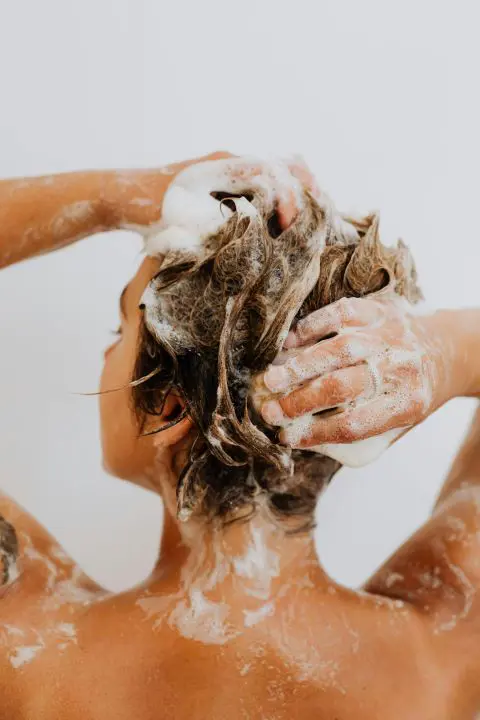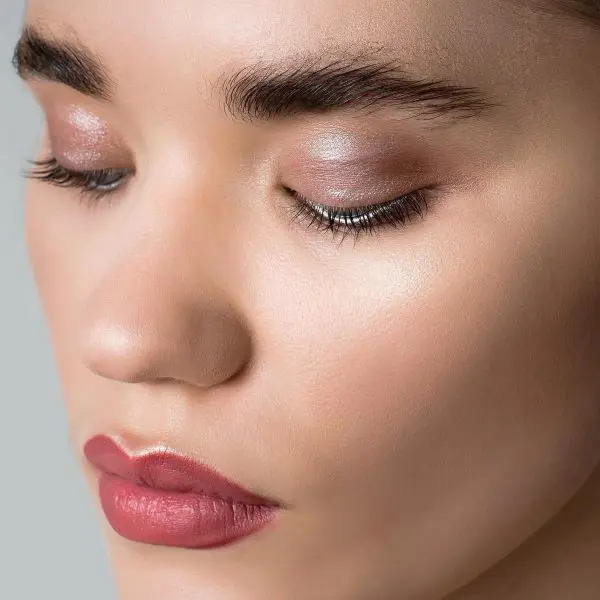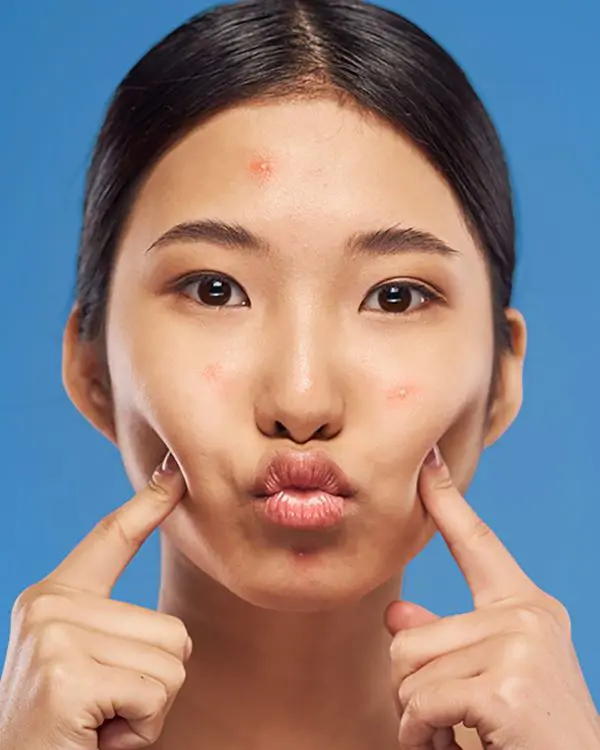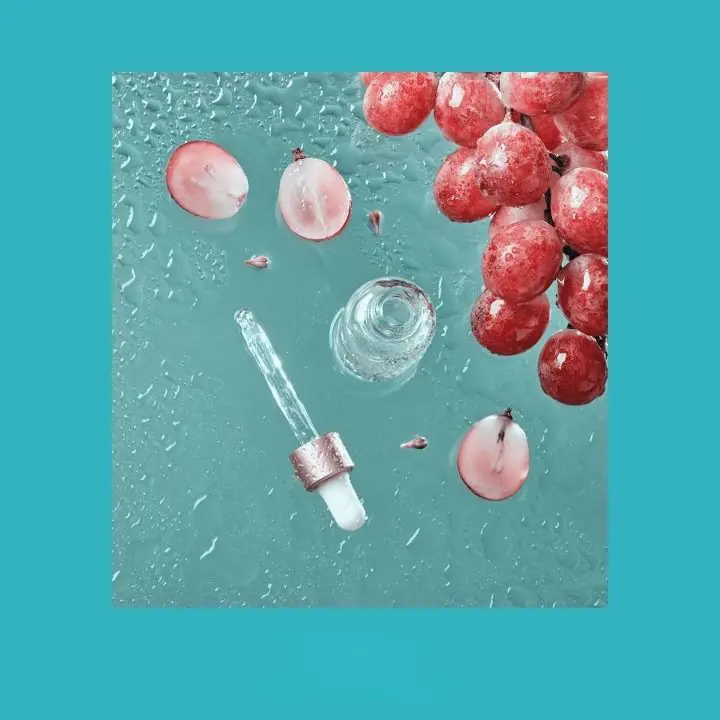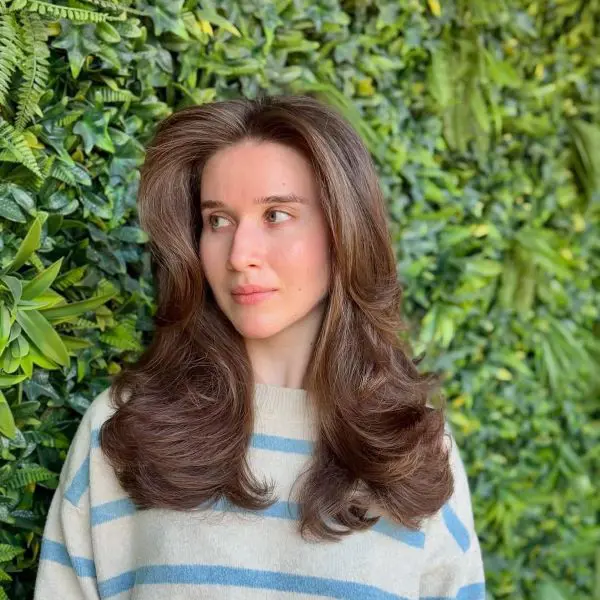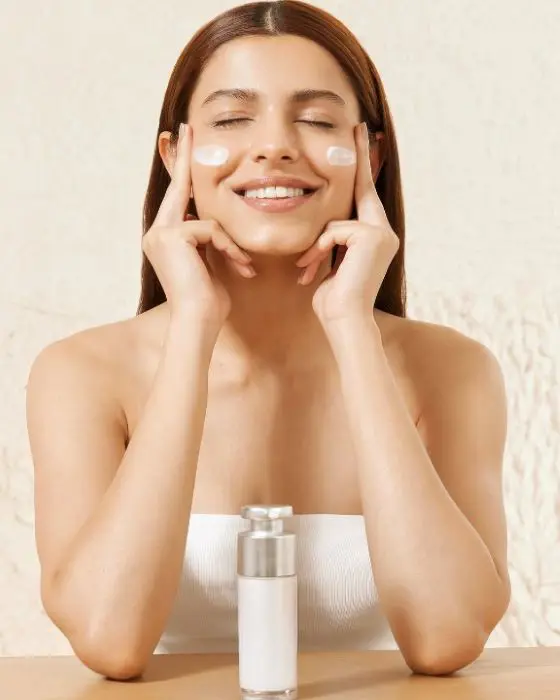Hair loss is entirely normal, as shedding is a natural process. However, chronic hair loss - especially during everyday activities like showering; can be distressing.
To maintain healthy hair, understanding what constitutes normal hair loss and identifying factors that contribute to increased shedding is essential.
Here, you will get detailed information on normal hair shedding during showers, possible reasons, and exercising preventive measures in the case of hair loss.
Normal Hair Loss VS Excessive Hair Loss
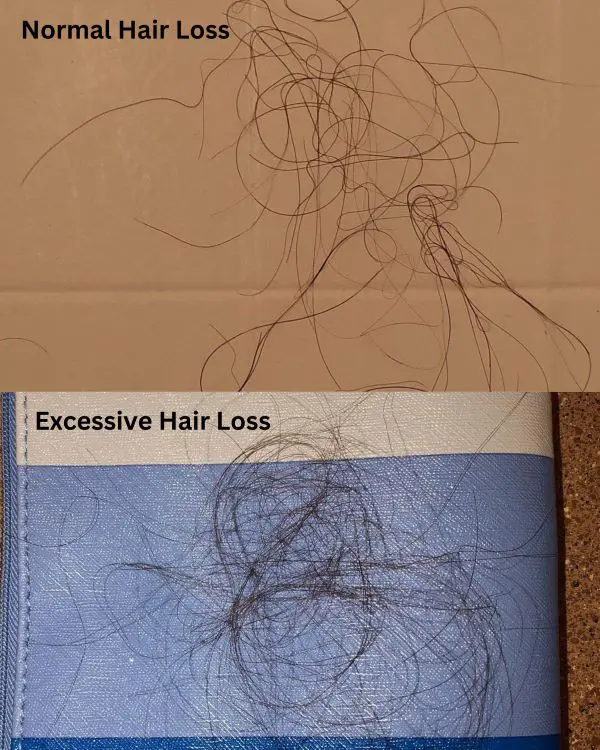
Be aware that hair grows according to a cycle and that it falls out during these cycles. However, it is important to distinguish between normal hair shedding being part of the growth cycle, and excessive shedding as caused by some damage or health issues.
Normal Hair Loss
If you’re wondering how much hair is normal to lose in shower. The daily average is around 50-100 hairs that fall out.
This includes shedding hair caused by brushing, washing, and so on. These falling hairs are natural in the hair cycle, where new hairs replace old ones.
In contrast to other settings, in a shower, it appears as though a greater number of hairs have fallen since it involves water exposure, friction from washing, and manipulation.
Excessive Hair Loss
Shedding over 100 hairs daily, especially during hair washing, may indicate underlying conditions affecting both hair and overall health.
In severe cases, this can lead to noticeable hair loss, increased breakage, and thinning along the scalp, making hair management more challenging.
What Causes Increased Hair Loss In The Shower?
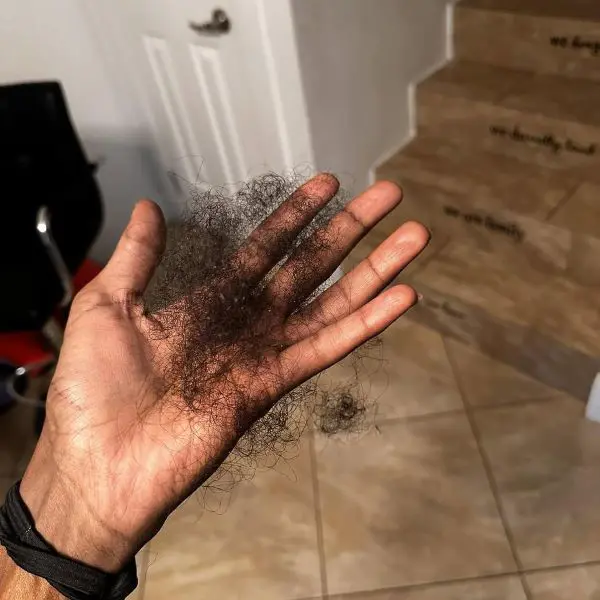
Let’s dive and find out the causes for your intense hair loss in the shower.
1. Hair Growth Cycle And telogen Effluvium
Have you ever learned about the hair growth phases? Well, it comprises three primary stages: anagen (growth), catagen (transition), and telogen (resting).
When you reach, telogen phase, it is natural for hair strands to shed more rapidly.
However, in conditions like telogen effluvium, the percentages of hair loss increases dramatically, leading to noticeable shedding during showers.
2. Hormonal Dysregulation
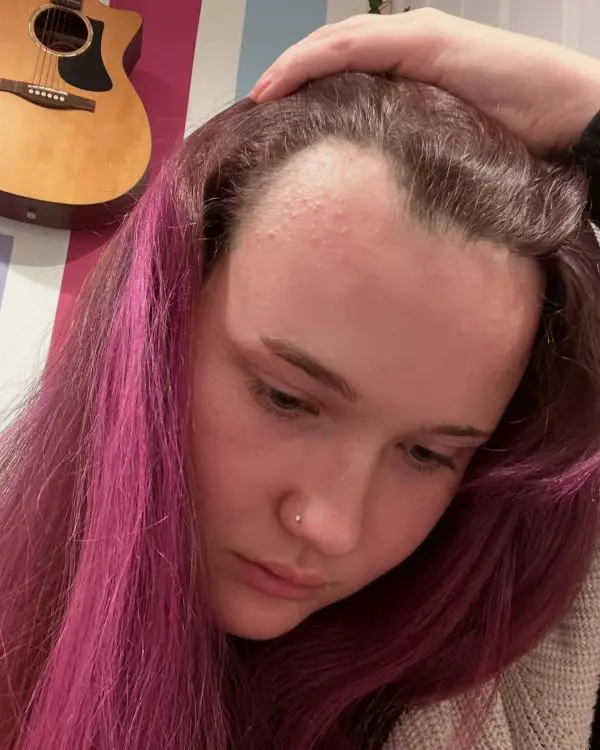
These fluctuations of the hormones lead to the triggering of the hair growth cycle in which the number of hair strands in the telogen stage does increase first and then they become shed.
This can happen during pregnancy and postpartum stages. As in these stages, estrogen levels go up and down.
Furthermore, thyroid disorder and PCOs can be equally responsible for hair thinning.
3. Nutritional Deficiencies
Usually it is hard to understand the indication of what our body needs. Sometimes you may lack essential nutrients that weakens hair follicles, leading to hair fall.
Other times the improper balance diet. Whether you lack iron, biotin, vitamin, or protein, slight deficiencies of these nutrients, the effects on hair can be rapidly noticeable.
Therefore, to improve your hair health and reduce shedding, incorporate nutrient-rich foods, then see the difference.
4. Scalp Conditions And Infections
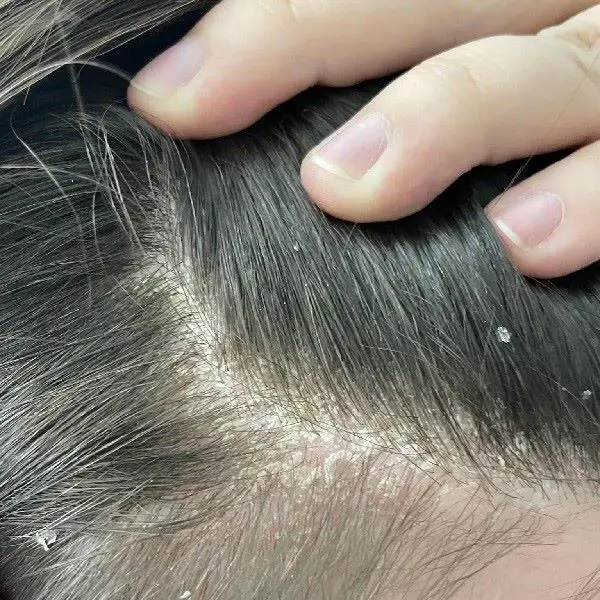
Frustrated by finding strands all over the shower floor? You’re not alone! However, have you ever sat down and thought of what might be causing it?
Common skin problems like dandruff and seborrhea can cause a lot of harm to the hair follicles just the way pebbles affect the flow of water.
Such factors affect the balance that the scalp provides so that hair grows and replaces the lost follicle, thus resulting in continuous hair loss.
Additionally, infections can disrupt natural scalp health, exacerbating shedding.
Regular scalp washing and gentle massaging can help dislodge weak or loose hair, making shedding more noticeable during showers.
5. Stress And Lifestyle Factors
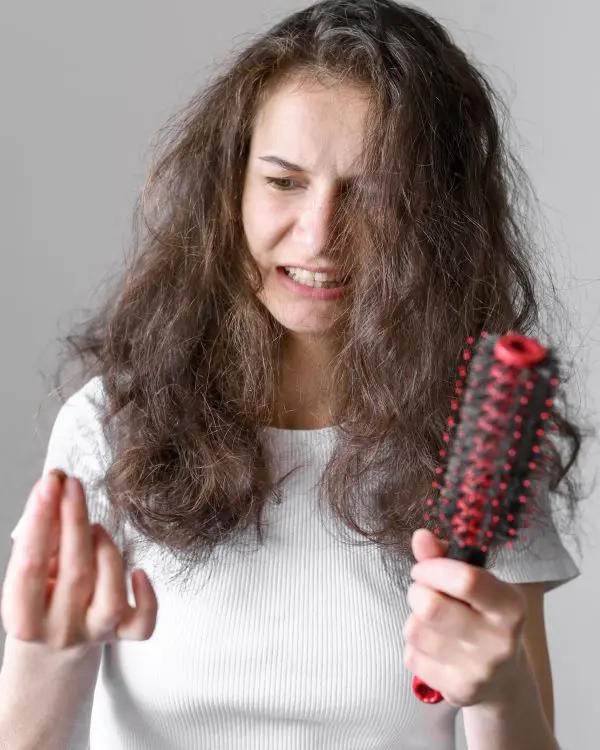
Stress produces hormones such as cortisol, which can put significant strain not only on hair follicles but also on individual strands.
This can extend the hair lifecycle, pushing more hairs into the telogen phase, making them more likely to shed during rinsing.
Moreover, inadequate quality sleep is detrimental to general wellbeing and therefore a hindrance to the scalp ability to produce healthy hair growth conditions.
Thus, one has to ensure that he or she leads a balanced lifestyle that will in turn benefit his or her hair and body.
6. Hair Care Practices
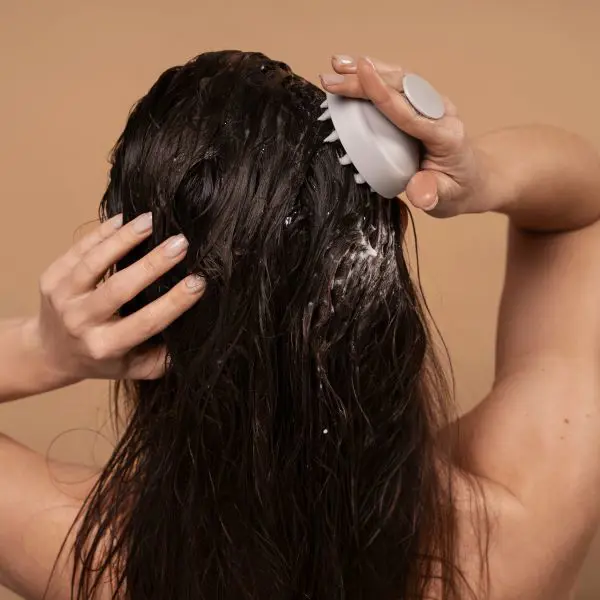
Knowing how to wash hair is deceptively trivial. Aggressive scalp and hair cleaning can lead to strand damage, weakening the structure of hair fibers.
Likewise, using shampoos, or treatments with strong chemicals can strip the scalp of its natural oils.
Additionally, frequent use of hot tools and tight hairstyling, while skipping conditioning can damage your hair leaving it dry and brittle, leading to breakage during brushing and washing.
Though it doesn’t alarm you, hair care plays a vital role in balancing hair loss.
7. Seasonal Shedding
Seasonal shedding is a normal and temporary phenomenon.
Changes in seasons, such as reduced daylight or fluctuating temperatures, can prompt hair follicles to release older strands.
This natural process may result in more loose hair being dislodged during activities like washing or brushing hair.
To minimize the perception of excessive hair loss during this time, adopt gentle hair care practices and focus on maintaining a healthy scalp.
8. Aging And Genetic Factors
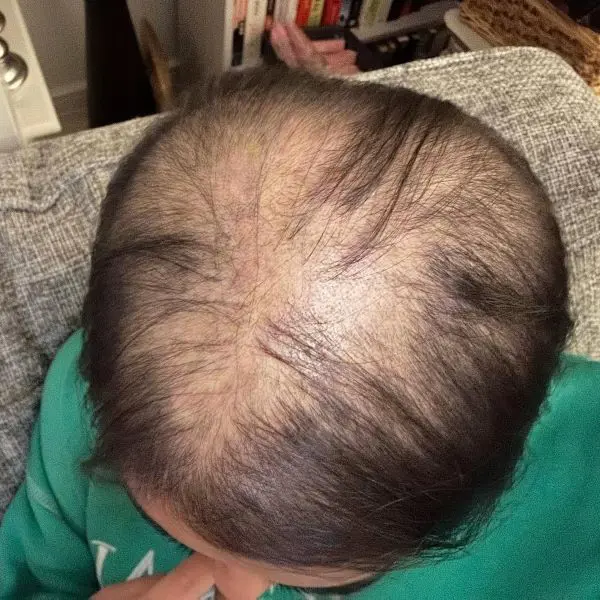
With the onset of aging, there is a reduction in active hair follicles, leaving the few remaining hairs to fall with virtually no friction because of their fragility.
The scalp may also age, become dry and lose elasticity, making it difficult for hair follicles to hold onto hairs that frequently shed noticeably during showers.
These age-related factors contribute to hair thinning.
In men, pattern baldness typically targets the crown and hairline, while in women, thinning often occurs along the part line or across the entire scalp.
Tips For Managing Hair Loss In The Shower
Take proactive steps to manage and prevent excessive hair shedding. Here are a few effective strategies to consider:
-
Limit Washing Frequency
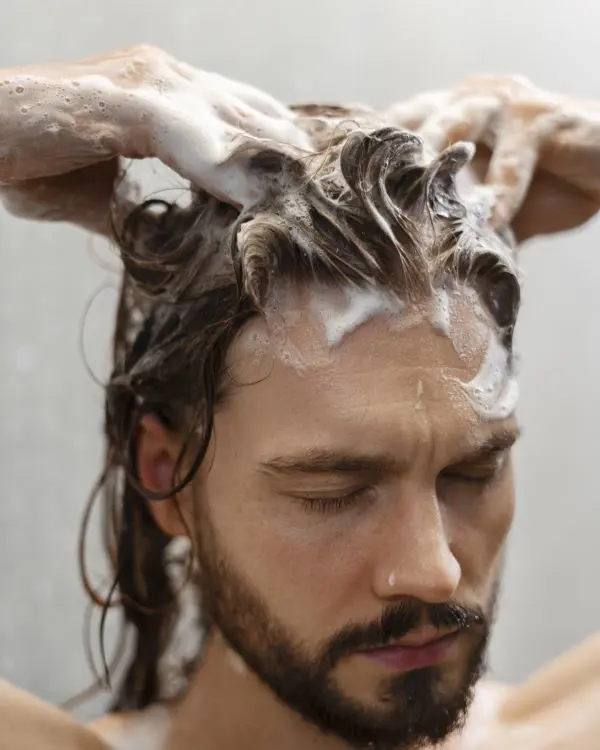
Occasional hair washing helps maintain the natural oils necessary for a healthy scalp.
In general, people can keep their hair healthy by washing it 2 to 3 times a week at the most based on certain hair types alongside their lifestyle.
Hence, a dry shampoo will help absorb excess oil without disturbing the scalp's balance and reduce hair manipulation and stress on the hair follicles, possibly minimizing hair loss.
-
Strengthen Hair With Nourishing Treatments
Regular conditioning or deep conditioning treatments can significantly enhance the strength and manageability of your hair.
Theerefore, leave-in conditioner or creating homemade hair masks after washing, minimizes tangling and breakage when washing off the hair products.
This simple step can effectively address the question: how much hair loss is normal male.
-
Protect Hair From Damage
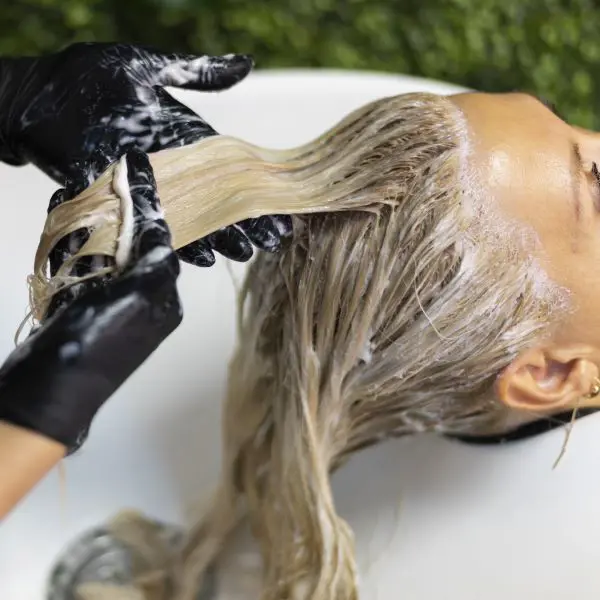
To stay trendy, we often use various chemical products and styling tools on our hair, leading to hair fall and other issues.
Limiting the use of high heat settings and always applying a heat protector during styling can help minimize stress during washing and drying.
Additionally, reducing the frequency of such treatments or opting for gentler alternatives can significantly improve hair health.
-
Monitor Hair Health
When wondering how much hair loss is normal in the shower, many people overlook the importance of monitoring their hair's condition.
Keeping track of shedding patterns allows you to identify excessive hair loss early and focus on areas that need extra care.
Regular scalp massages and avoiding tight hairstyles can also help reduce hair fall, promoting healthier and stronger hair.
-
Prioritize Proper Hair Drying Techniques

Air drying is the gentlest method for drying hair, as it prevents the stress caused by heat and friction from towel drying.
Patting your hair with a soft, absorbent towel helps minimize mechanical damage and reduces breakage.
While quick-drying methods may be convenient, they often contribute to hair damage.
Focus on gentle handling and let your hair dry naturally for healthier, stronger strands.
Natural Products That Help Prevent Hair Loss
Natural remedies have often been adopted in the treatment of healthy hair and for preventing the loss of hair.
This use of natural products puts much nourishment to the scalp and creates conducive properties on the hair follicles. Here are a few natural products famous for these:
Aloe Vera
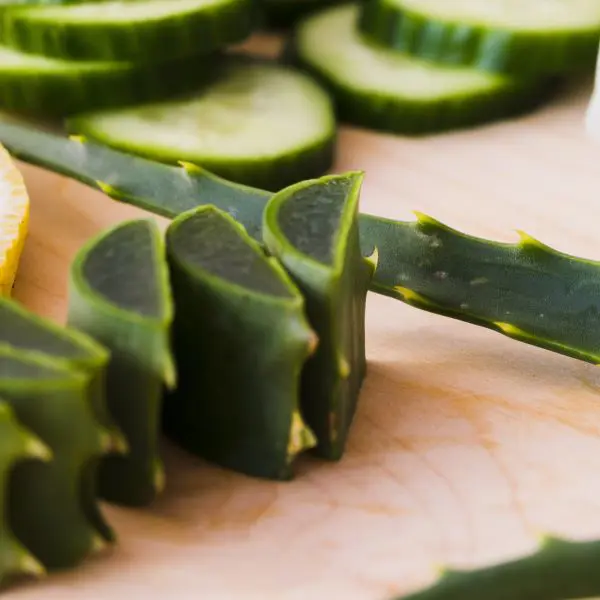
This component of soothing properties soothes an irritated scalp and causes healthy hair growth. Its enzymes can remove dead skin cells and stimulate the growth of new.
Castor Oil
Rich in unsaturated fatty acids and vitamin E, castor oil causes hair to thicken while reducing hair fall.
Argan Oil
It has the antioxidants and fatty acids on which hair can rely for strength and moisture against damage and thinning.
Eggs And Olive Oil Mask

For preparing this mask, take 1 raw egg and mix it with 2 tablespoons of extra virgin olive oil.
Apply on scalp and let it sit for about 30 minutes before washing off with a mild shampoo.
Bhringraj And Amla Mask
These are traditional ways of promoting hair growth and reducing hair loss. This mask strengthens follicles and stimulates scalp help.
For this, incorporate the powdered bhringraj and amla with coconut oil to form a paste. Then, apply and leave for 30 minutes, then rinse thoroughly.
Honey And Apple Cider Vinegar Mask
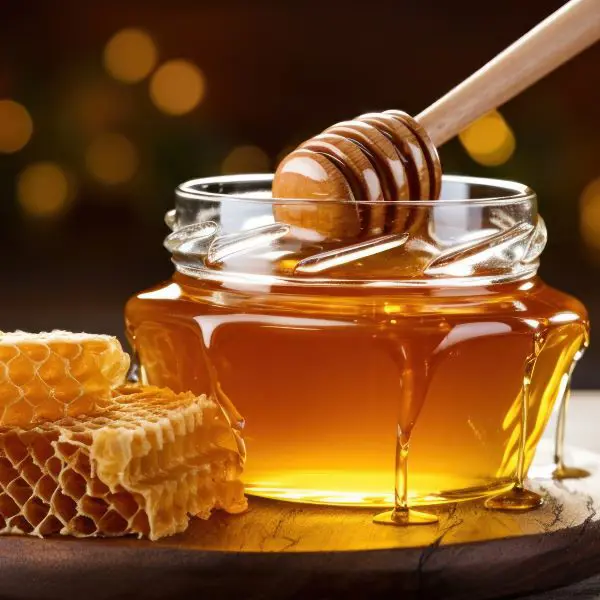
Preventive measures for scalp infection and the dual action of balancing pH levels, these are the two ingredients; honey and apple cider vinegar.
Just mix each tablespoon of it. Apply and cleanse with warm water.
Takeaway
Noticeable Thinning
Indeed, if your hair is thinning in the crown area or the margins of the originally chosen parting, or in general over the entire scalp.
It most likely can be associated with such diseases as androgenic alopecia (patterned baldness) or diffuse hair loss.
Scalp Discomfort or Changes
Itching, burning sensation or pain or tenderness on the scalp is an indication of irritation or of conditions.
This includes situations where the skin becomes red or scaly, develops sores, or appears to be peeling in an unnatural way.


